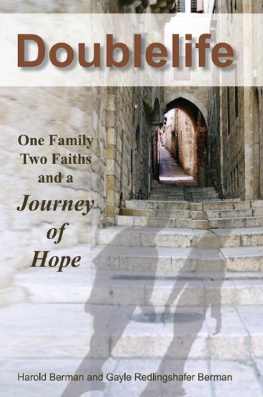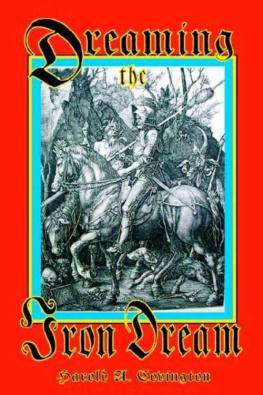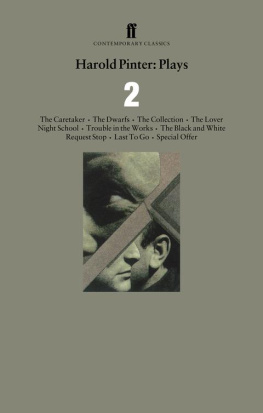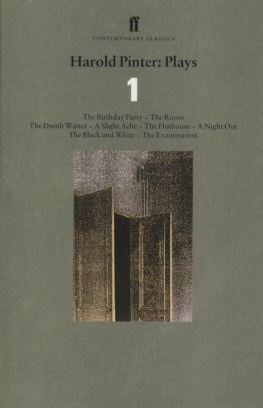
THE WORLD IS THE HOME OF LOVE AND DEATH
Harold Brodkey

CONTENTS
The hard rain sounds like a heartbeat. The heavy green canvas awnings around the three-sided screened porch buck and grunt and creak; they sag with the hard rain, and they drip, and then suddenly they rise and twist and water splashes out. Inside those passionate sounds, the porch glider squeals and the wicker chair squeaks. Ida Nicholson, Mommas guest, in expensively crude, heavyish, wrinkled linen and with stylishly stately curls on either side of her head (her hair smells of hot iron even in the rain), sits with bossy nervousness in the wicker chair.
Momma has on rouge and eye shadow; and her lipstick is so bright in the damp air that it shouts in my eye. Mas porch grandeur. She is all dressed up. Her eyes are not fully lit; they are stirring like half-lit theaters. The lights never go on, the scenes are not explained. Her nakedness of but only half-lit soul puts a disturbance into the airI feel shouted at by that, too. Her art is immersed in darkness. The floor of the porchconcrete with an oval straw rugsmells of the rain. Lilas voice: Ida, everything that I do on this matter, I do because S.L. loves this childhes pretty, isnt he? You wouldnt think he was just flotsam and jetsam. You know me: I may vote Republican yet; Im not the maternal typethe child is S.L.s pet project. S.L. makes the decisions; if he doesnt call in a doctor because the child doesnt talk, theres an excellent reason: S.L. has thought it out: if the child is real sick, what are we going to do? How long can we keep him? Now hes doing fine. S.L.s in no rush: sufficient evil unto the day. I cant tell you what to think, but I can advise. I recommend it to everyone, Lets live and let live. Im not an inexperienced person, Ida; in a lot of battles, I count for more than a man.
Ida is delicately made but ungainlythat is a kind of sexual signal. It is an indication of will. Her movements and eyes are more for purposes of giving social and political and intellectual messages than sexual onesthis is a matter of pride as well as of defiance, a useful grotesquerie. Her alertness is a kind of crack-the-whip thingnot uncommon in the Middle West but uncommon there to the extent she takes it when she is not being folksy and Middle Western. Her style of dress, expensive and sportif, French, is obliquely sexual in the manner of women athletes of that day, golf players and tennis players, and is without the insolence that marks the project of the arousal of men: she is seriously chic, magisterially so, and that includes a mock dowdiness.
Lila does not try to compete with that: big-breasted Lila, in white with polka dots and a wide patent-leather belt, is sadly heterosexualtheatrical at itbut convincingly real, not even faintly a pretender. She has the gift, or art, or intrusiveness, of apparent personal authenticity.
Idas legs are thintoylike almostabove flat shoes with fringed shields over the laces. Lilas legs are those of a cabaret singer, in high-heeled patent-leather pumps, very plain and yet noticeable anyway. Ida has on a white-and-blue tie, Lila a white-and-black polka-dotted scarf caught with a diamond pin. Idas polite inexpressiveness, a powerful quality in her, and her social rank (her position in relation to what others want from her) add up to her being a dry person, someone with a dry wit, a wonderful person, really, and(to go on using Mommas terms) she was in charge. Who was I? We were nobodies.
Ida has a pronounced quality of commandbut it is not local-dowager stuffit is charmingly in-and-outtaking turns, fair play (Idas phrases)but (Lila said) she was always the referee and the judge (of what was fair).
Ida feels that nothing in the way of feeling or intellect is a puzzle for her. Her omniscience had lapses but she did not overtly confess to them: she could not have run her kingdom then. Her confidence came from her triumphs: her sister married a newspaper-and-magazine potentate in the East (Boston chiefly). She may have influenced the policies of the newspaper. She always said she did. She was a dilettante philosopher in public conversation and good at it. Then, there were her successes in Europesocial ones, with women: the most difficult kind. She divided feelings into those of pleasureby which she meant feelings of self-love, the acknowledgment of merit and standing, of the powers of the selfand the feelings of emergency: hurt, rage, self-pity, the necessity for fighting.
Knowing Ida meant you were playing with fire. For Ida, incoherence is ill-health: she becomes an invalid from contradictionin herself, by others of her. The fluctuation in others of contradiction, the foreign actuality of others thoughts, plus her ignored feelings when others show their strange thoughts, cause her nervousness. Ida feels as a Christian (lady) that historically the serious work has been done and that certain forgiveness obtains nearby for sillinessforgiveness overall and acceptance: a truce. For her, religion has altered into mannersthrough manners she has a high-speed connection to what she considers to be the tragic; and she has a tactful attachment to silliness (everything that is not tragic but is merely sad). She hungers for transcendence. This gives her a beauty that Lila is aware of, an ugly beauty of a sort, a real beauty, the kind men dont know about: Ida is a someone. Idas moral illiteracy, her ethical inanity, are not anything unusualthey are the common human matter of power.
When Ida was on her high horse, you could forget she hated everybody and could do anything she liked and when she did it she didnt apologize: there was a lot to her. If luck had gone her way, who knows what she could have done? She was a brilliant person who was also no good.
Idathis is in a moment without men in itasks, converting her full rank into tentative silliness, with a great deal of calm and yet nervous music in her voice, Well, Lila Pause. What do you think of the rain?
Lila sits suddenly still on the porch glider. Her face seems to recognize a great many notes and possibilities in the questionthis is sort of a jokeand she replies as if carefully, the false carefulness making an ambiguous music, I dont mind rain; my hair holds up in the rain. Im lucky: I dont get frizzy.
Ida puffs on a cigarette. Momma suddenlynavelyposes as someone who is not watching Ida.
Ida looks at Mommas hairthe widows peak, the shininess above and below and around, past the polka-dot bandanna (and its tail); and she says, Im a daughter of the pioneers, Lilly. I have prairie hairI get frizzy; its a bane: Im just a workaday personLilly
Thats special Midwestern talk, including Mommas grade-school name.
Momma has a drink clasped in a ringed hand; she keeps her eyes lowered even when her old name is uttered. Ida has a drink, too, and a cigarette. Momma sighs: so much decipheringIdas clothes and money and voice and the momentand then Momma shifts her posture and suddenly gives up, as if with overwhelmed innocence or navet or ignorance: this is her most common tactic with a powerful woman, to give in, give up, and not mean it: its a kind of wita kind of sexuality. Mas face shows she decides to be the hostessordinary. There is a question whether Ida will allow it. Will Ida insist on being at home in Lilas house? Will she treat it like
Next page











